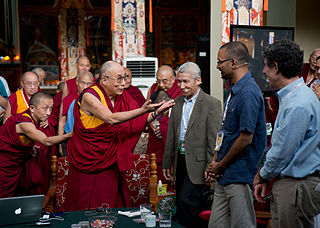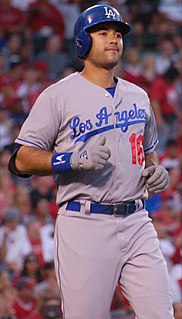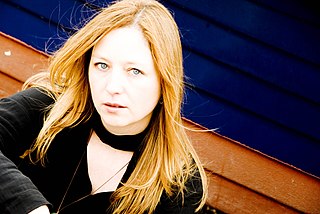A Quote by Lawrence M. Krauss
Science has been effective at furthering our understanding of nature because the scientific ethos is based on three key principles: (1) follow the evidence wherever it leads; (2) if one has a theory, one needs to be willing to try to prove it wrong as much as one tries to prove that it is right; (3) the ultimate arbiter of truth is experiment, not the comfort one derives from one's a priori beliefs, nor the beauty or elegance one ascribes to one's theoretical models.
Quote Topics
Arbiter
Based
Beauty
Because
Been
Beliefs
Comfort
Effective
Elegance
Ethos
Evidence
Experiment
Follow
Key
Leads
Models
Much
Nature
Needs
Nor
Our
Principles
Prove
Prove It
Right
Science
Scientific
Theoretical
Theory
Three
Tries
Truth
Truth Is
Try
Ultimate
Understanding
Wherever
Willing
Willing To Try
Wrong
Related Quotes
Opponents say natural selection is not a theory supported by observation or experiment; that it is not based on fact; and that it cannot be proved. Well, no, you cannot prove the theory to people who won't believe in it any more than you can prove that the Battle of Hastings took place in 1066. However, we know the battle happened then, just as we know the course of evolution on earth unambiguously shows that Darwin was right.
Any strategy that attempts to reinforce faith by undermining science is also doomed to failure. Showing that some scientific theory is wrong will not prove that the religious alternative is correct by default. When the sun was shown not to be the center of the universe, as Copernicus had proposed, the Earth was not moved back to that singular position in the cosmos. If Darwinian evolution is proved wrong, biologists will not develop a new theory based on the hypothesis that each species was created separately by God 6,000years ago.
But the Chief Justice says, 'There must be an ultimate arbiter somewhere.' True, there must; but does that prove it is either party? The ultimate arbiter is the people of the Union, assembled by their deputies in convention, at the call of Congress or of two-thirds of the States. Let them decide to which they mean to give an authority claimed by two of their organs. And it has been the peculiar wisdom and felicity of our Constitution, to have provided this peaceable appeal, where that of other nations is at once to force.
I cannot prove that gods do not exist. Nor can I prove that the world and everything in it was not created by an entity or entities in the distant past. But I can tell you that in the millennia we elves have studied nature, we have never witnessed an instance where the rules that govern the world have been broken. That is, we have never seen a miracle. Many events have defied our ability to explain, but we are convinced that we failed because we are still woefully ignorant about the universe and not because a deity altered the workings of nature.
One of the ways of stopping science would be only to do experiments in the region where you know the law. But experimenters search most diligently, and with the greatest effort, in exactly those places where it seems most likely that we can prove our theories wrong. In other words, we are trying to prove ourselves wrong as quickly as possible, because only in that way can we find progress.
There is no strong evidence to prove significant human influence on climate on a global basis. The global cooling trend from 1940 to 1970 is inconsistent with models based on anthropogenic carbon dioxide emissions. There is no reliable evidence to support that the 20th century was the warmest in the last 1000 years.
It was while I was studying philosophy that I came to understand. . . that it is no sign of moral or spiritual strength to believe that for which one has no evidence, neither a priori evidence as in math, nor a posteriori evidence as in science. . . . It's a violation almost immoral in its transgressiveness to shirk the responsibilities of rationality.
































